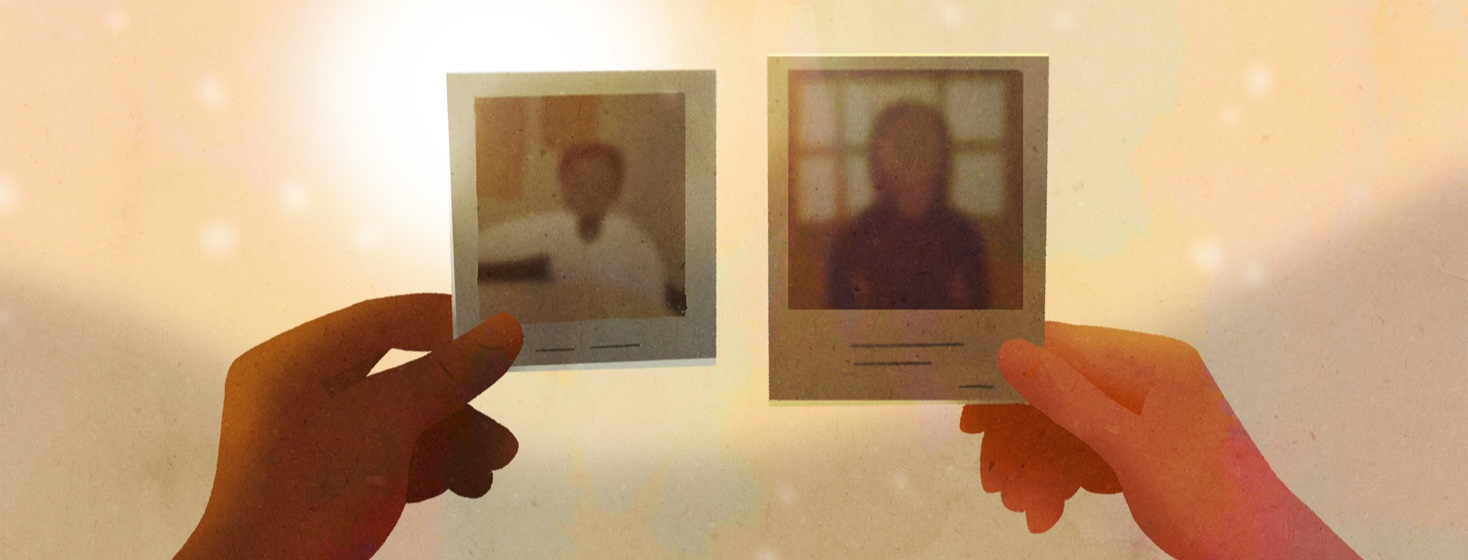Reflections of Two Caregivers: Patti & Yolanda
This article was co-authored by Yolanda Brunson-Sarrabo and Patti Henry. Both Yolanda and Patti lost their mothers to lung cancer. They share a conversation they had about caring for and supporting a parent with lung cancer, and the depth of disparities some face when seeking cancer care.
Yolanda's dismay and outlook
My mom was indeed a warrior in all sense of the word, and gave little room for nonsense; I follow the same sentiment. I definitely get my will and drive from my mother.
When she was diagnosed with lung cancer, she saw her short journey as yet another hurdle to climb. It has never been smooth or easy when she expressed her aches and pains to her physicians. She may have gotten one or two that would listen with full ears, rather than pushing off her gripe with pain. Meticulous with doctor appointments, she had no qualms speaking up but I question now did certain pains or specific discussions in care hit a nerve for her for a variety of reasons?
My mother did meet a block at the most unfortunate time when she needed some form of solace and empathy. The subject of racial disparities in healthcare is and has been a roadblock for so many Black people, and more so Black women. Though my mother was a smoker, I do wonder if because of her push and strong will, that when caring for her the blinders went up for her doctors, and pushed her out the door quicker. Though some people may not want to believe or give attention to the very essence of equal care, especially with lung cancer. Her being a smoker in her life off and on, expressing not feeling the best at times, well did her doctors really do their due diligence at foreseeing and possibly sharing or not sharing her future plight with compassion?
Her care when diagnosed was deplorable and I saw firsthand the nincompoop who treated her, spoke to her, and sassed her. I shudder when I think of the many that don’t get the right doctor at no fault of their own. An open ear and regard for all patients smokers or not, Black or White...one day!
Patti's experience caring for her mother
My mom was diagnosed with lung cancer at 87 years old. Her views on how to be a patient were very different from mine. My mom believed it was rude to ask doctors questions so her oncology appointments required a delicate balance between making sure I was getting all the information needed, while still making sure my mom felt in control of her care. Fortunately, my mom was blessed to have been placed in the care of a geriatric oncologist who was kind and compassionate. Expertise and knowledge go a long way for sure, but compassion, in my mind, is paramount in building trust with a patient.
I did find it difficult to be a daughter, advocate, and caregiver. The technical side of me wanted all the answers, the daughter part of me didn't want to know anything, the caregiver wanted to make it all bearable for my mom and less scary. Of course, I had no reservations when my mom asked me to be her advocate. I was honored to be trusted with such an important part of her life and health.
As much as my mom was present for each appointment, her comprehension of all that was discussed was unreliable. Part of me wanted to keep her in the dark but I knew that was not how she wanted to be treated. So my job as her daughter and advocate was to be sure she knew and understood all the aspects of her care, and the planning process as her illness progressed. I knew that for as long as she could, she wanted to participate in decisions about her care. It was painful to explain the details about what was happening to her as her health declined. The emotional impact of being my mom’s advocate was far deeper than I anticipated and often got tangled with simply wanting to be her daughter.
Our final reflections on caregiving
Yolanda and I didn’t follow the normal interview process. We chatted and got to know one another and naturally learned a lot about our common experiences and some of the painful differences. At one point Yolanda communicated to me that she hates cancer. That thought was painful for me in a different way.
Yolanda and I were both caregivers, we were our mom’s medical advocates and we both have had cancer ourselves. Yolanda hating cancer is normal with all she has seen and been through. The most jarring aspect of learning about Yolanda’s experience in advocating for her mother is that her skin color made her job that much more difficult. The depth of disparity in care that she experienced while advocating for her mother is reprehensible. The hate that Yolanda expressed for cancer came from knowing my experience and how painful it was for me to be an advocate and child. It was eye-opening to know that my journey, while painful, was easier than Yolanda’s and her mom’s because of the color of my skin.
As we all move forward in these volatile times, I can’t say it more clearly, it is incumbent upon all of us to fight for the changes that need to happen. It is our responsibility to speak up and join the conversation so we can understand, help to raise the awareness that these disparities exist; that they are not an occasional occurrence but one ingrained in our thinking and therefore happening every single day to our fellow citizens. My hope is that Yolanda’s dream that one day “an open ear and regard for all patients, smokers or not, Black or White” is closer to becoming a reality.
This or That
Which would you like to learn more about?

Join the conversation